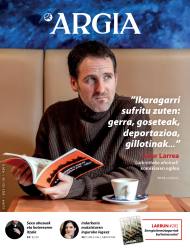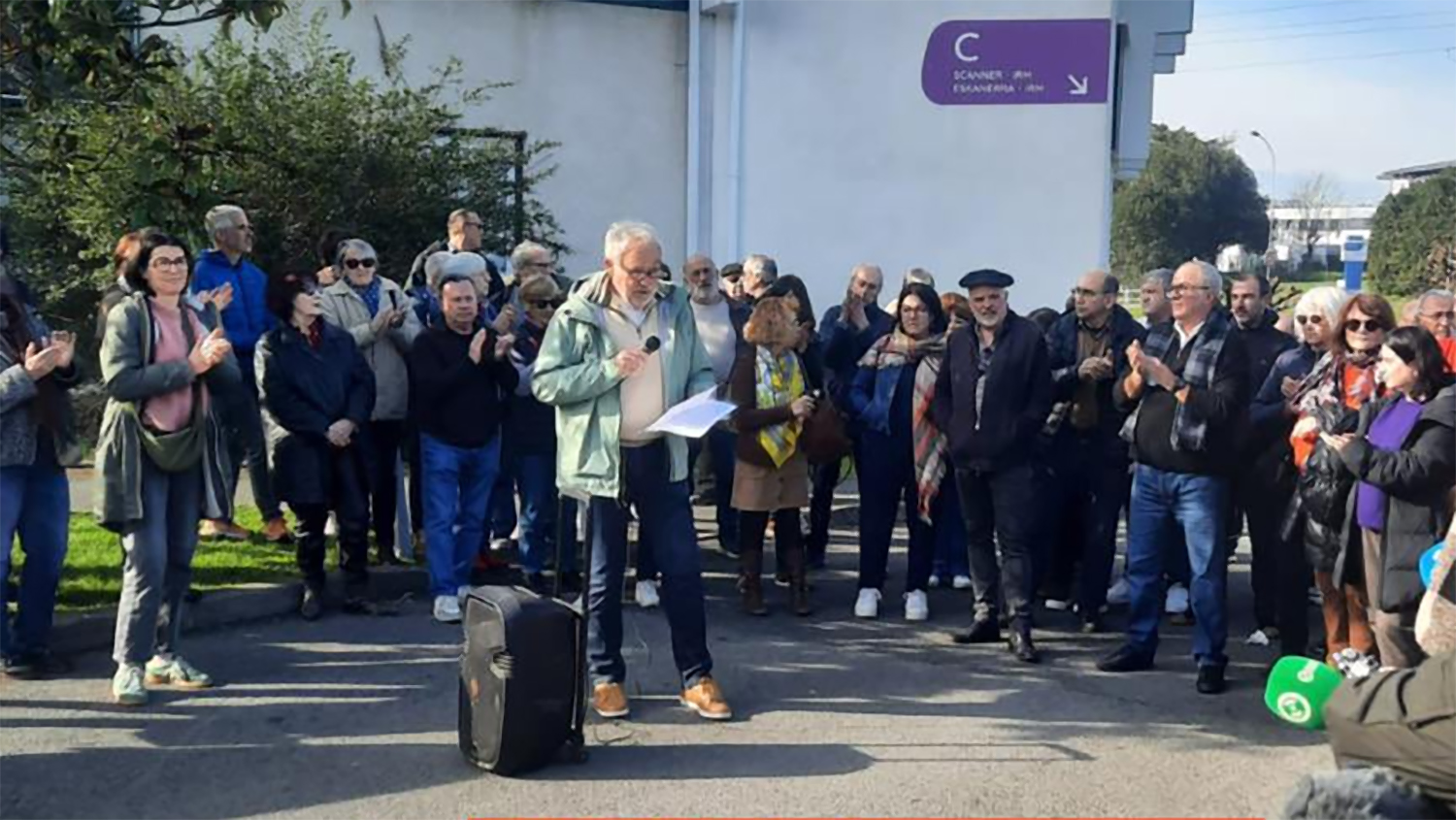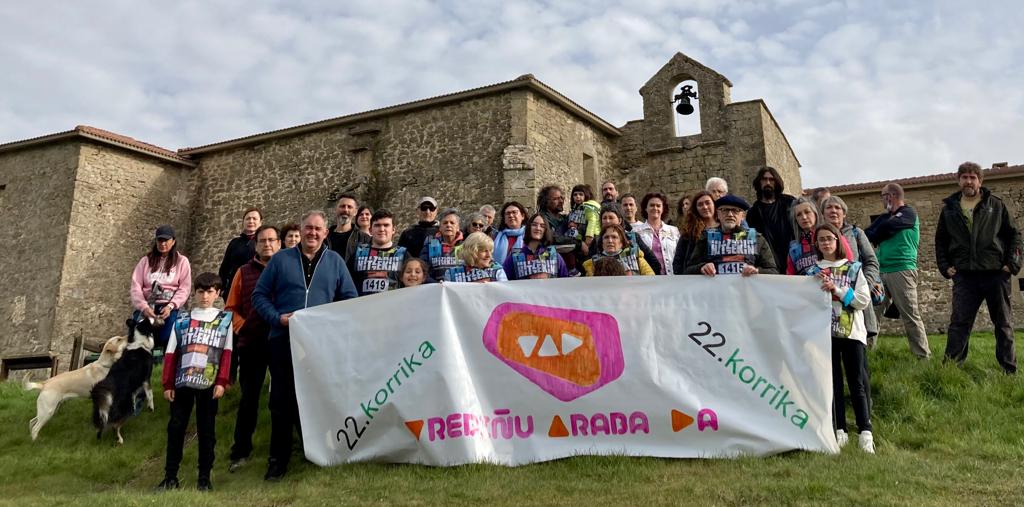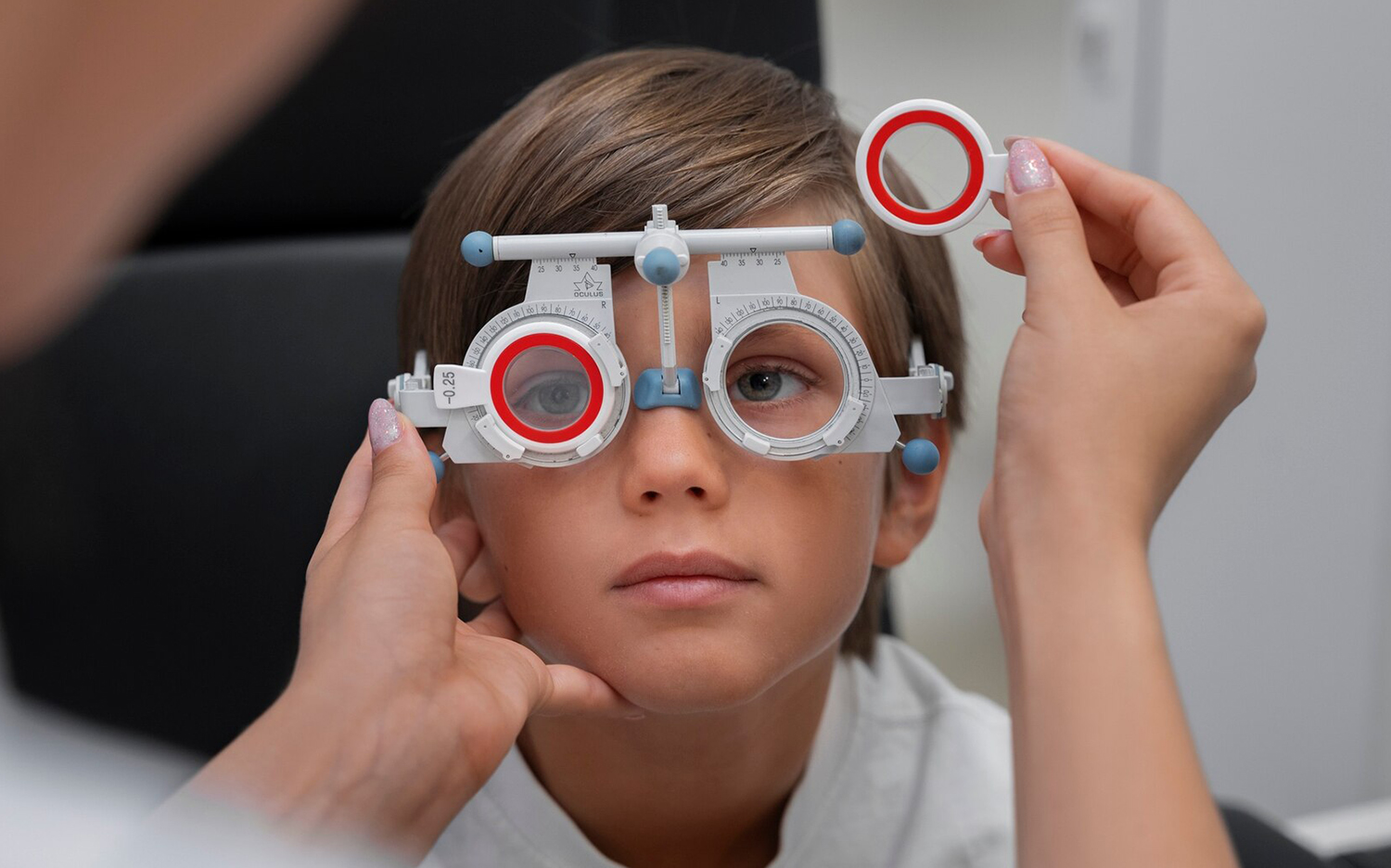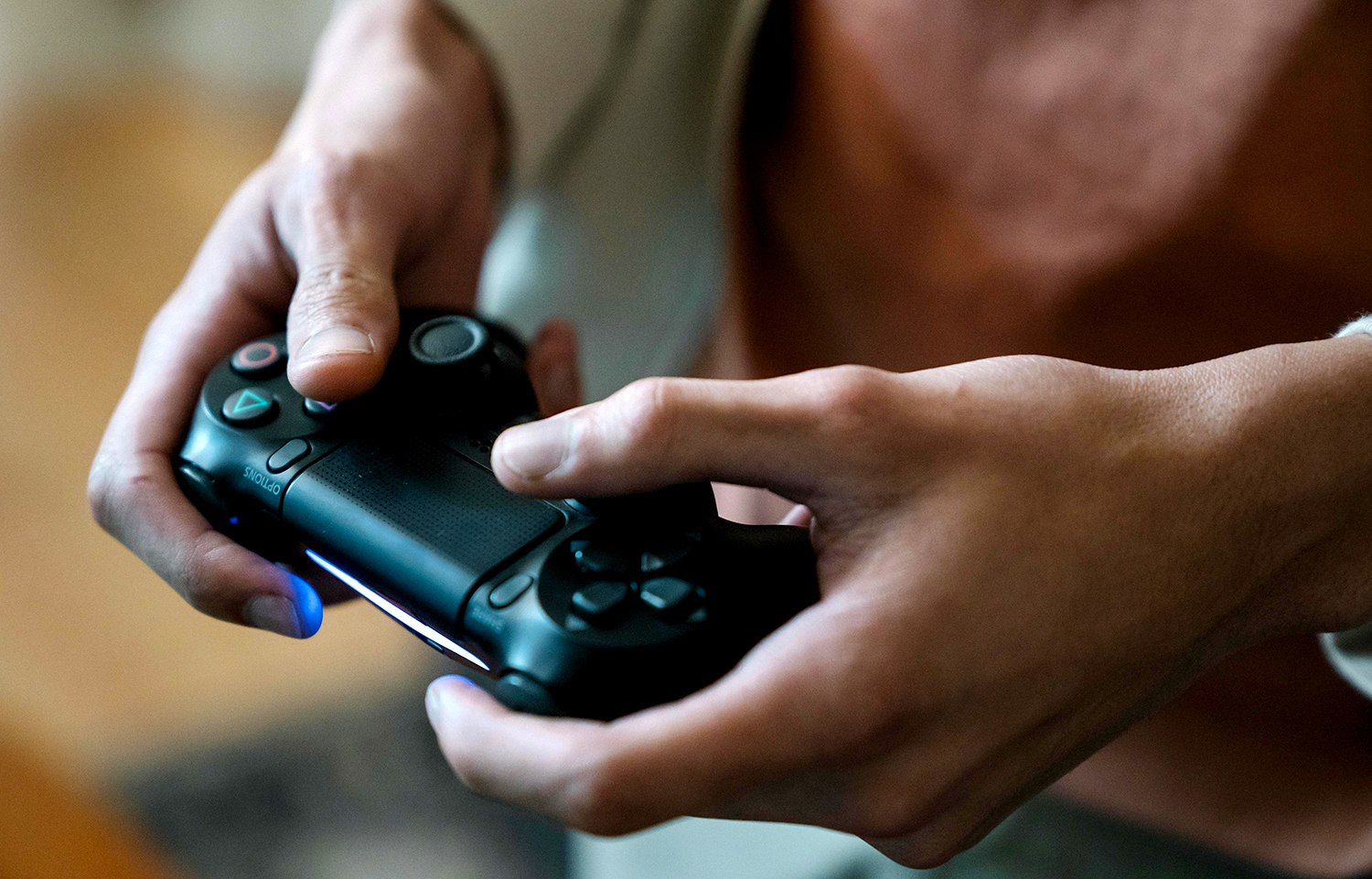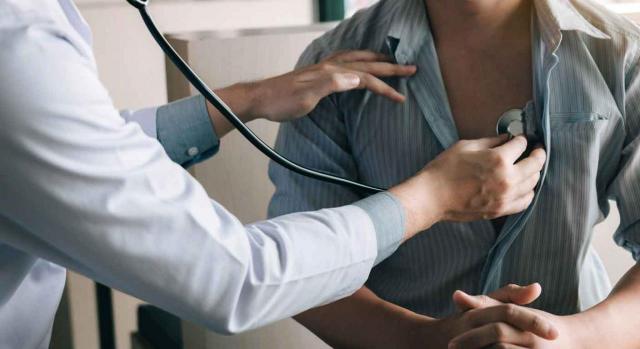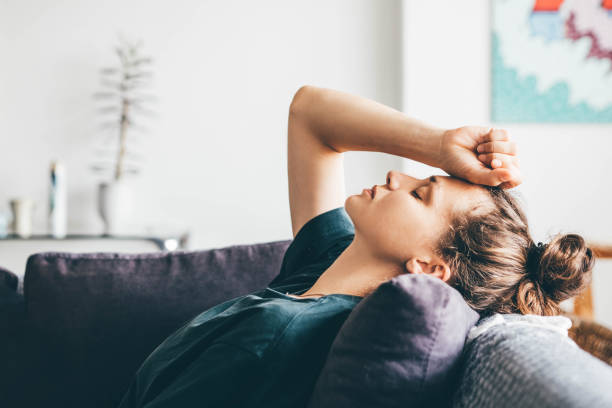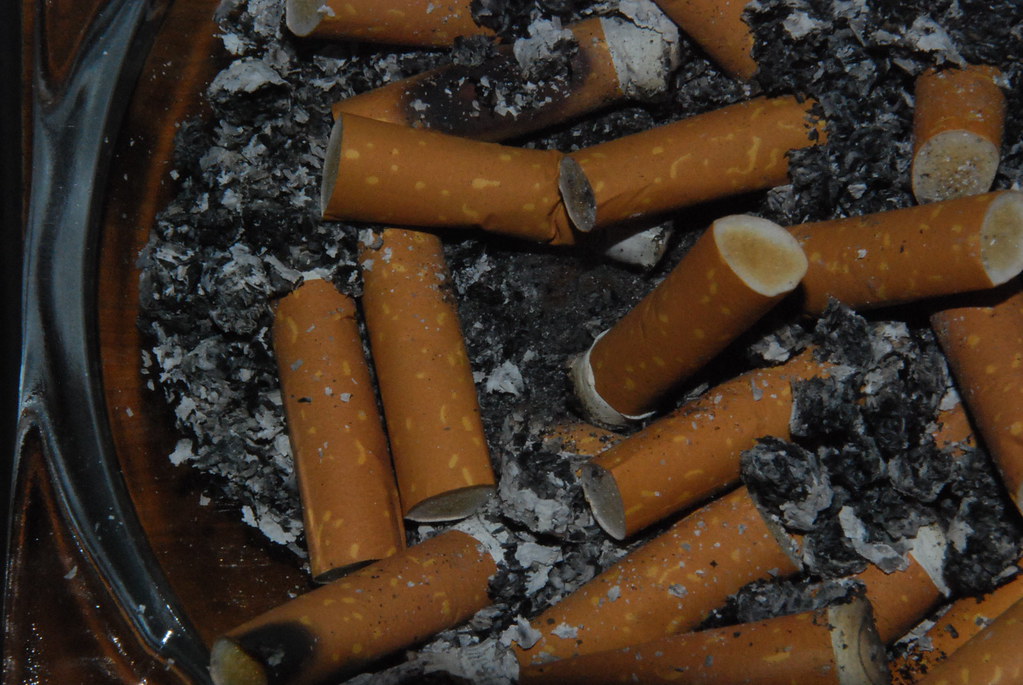Discomfort from unlearning pain
- “I often felt a lot of pain in my feet, but it was rare because I didn’t associate with a blow or injury and didn’t identify where I came from.” They are words of Iraia Etxebeste, who for six years began to feel unexplained pain under the foot, and for a long time has sought the cause of that pain. According to neurologist Arturo Goikoetxea, it is due to a neuronal defect.
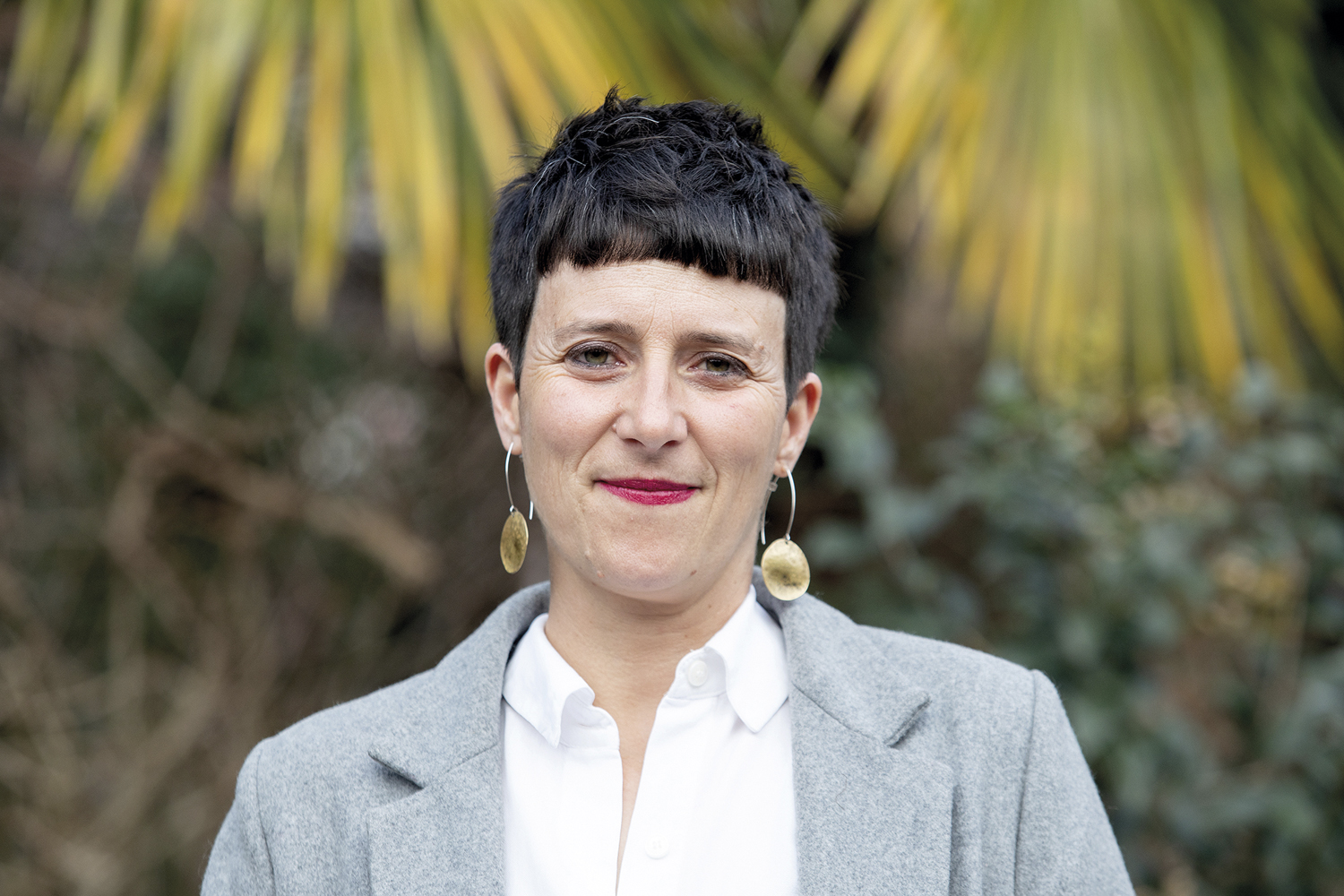
According to the neurologist Arturo Goikoetxea, although no damage is detected in the tests, chronic pain affects 20% of the population. It says that sometimes the brain tilts and when it detects a threat like the immune system can attack the body: “When there is a failure in the neural network and the brain feels a threat, it sends a message to the individual not to move and when it moves there is pain.”
Goikoetxea himself, without injuries, suffered back pain every year: “he was very disabling and for a week he could not leave the bed.” For the neurologist, the key is to understand the origin of pain and unlearn what we learned about pain: “When we break a bone, the bone does not feel pain, the pain feels in the brain. That is, the brain receives information and, depending on experiences and context, the feeling of pain is greater or lesser”.
He adds that the information provided by experts on pain conditions the way pain is felt: “What people know about pain is expert information, and then the professionals have failed because the information is incorrect”. Therefore, in Vitoria-Gasteiz, the GoiGroup created the GoiGroup to analyze chronic pain and disseminate pain: “Our intention is to dismantle the beliefs created around pain and restore the freedom that professionals have removed from users”.
Its goal is to educate and disseminate pain and care for people living with chronic pain. But the team didn’t come out of nowhere, the project started when I had back pain: “I couldn’t get out of bed one of those days I read that the worst thing I could do was stay all day in bed. So gradually, and by cheating the brain, I started to move.” Slowly, moving more and more and analyzing the pain, he managed to improve.
Seeing that moving was good, he explained the things they did to the patients to take away the pain: “I saw that working pain from another perspective is very beneficial because that pain calms the patients.” When he retired he created a “small” group to work the pain in Vitoria-Gasteiz, and when he got older he called him GoiGroup.
Iraia Etxebeste came to her, who felt “very identified” in a radio interview. At first I only felt pain in my feet, but every time I did sport over time I felt discomfort in my arm, in my feet or in my leg: “It was very rare because I came out two days after doing sport, then I started thinking there could be a connection between all the pains.”
Arturo Goikotxea: “Doctors are still very focused on pharmacology and when pain is not removed with the pills they think their origin is on the emotional level”
When the possibilities run out, he tried everything: doctor, fission, psychologist, osteopath and naturopathic: “They didn’t know what it was, they thought it could be fascitis, but the tests did not detect anything.” Despite being “better” days, he was “entangled” and “desperate”. Goikoetxea explains that it is common to try everything when they do not find an
explanation: “When opportunities are exhausted they accept the socially unknown and when they benefit they do not know how to explain it to the closest”.
He was treated for a fission in GoiGroup and Etxebeste was “surprised” because he did not have any tests and did not touch him: “He asked me about the pain and told me what the pain is, where it comes from, what the starting point is.” He's been working on pain for a year and a half.
Faced with the reaction of his body after practicing sport, Etxebeste stopped doing some things because he feared the following “pity”: “Pain was not unbearable, but standing was very painful. I was 35 years old and two kids, and I was like, "Is that always the case? Will it get worse and worse? What will my life be like?’ Ignorance “squeezes” above all: “It helped me a lot to understand that it was not my problem, but something biological.”
Understanding the origin of the pain as a result of Mina, who had been without
running for three years and after talking about it, he decided to run in Vitoria: “We talked about the blockade and we left for ten minutes to run. The next day, despite the pain, we went back out and realized I have no injuries.” Gradually the origin of the pain has been understood and the pain has been reduced: “As the brain is sometimes remembered, I repeat, but I take it calmer, because I know it’s one day.”
According to Etxebeste, two steps have helped him to improve especially: first understand that pain is a consequence of a neural defect and, on the other hand, disassemble the image he has built of himself: “If you think you are weak and if you do something you will get pain, you will not leave it.”
In Euskal Herria, there are few neurologists who treat pain from the point of view of Goikoetxea; when they began to investigate in Álava, several neurologists from Vitoria met weekly: “Many said that what he did made sense, but that it was difficult to put it into practice.” Goikoetxea is happy because in Navarra and Bizkaia they are also investigating: “Fortunately, physiotherapists are also paying close attention to it.”
Goikoetxea states that doctors often do not study people “as a whole”: “We believe that only molecules explain pain, but in man, besides molecules, there is also information.” For the expert, it makes no sense to just look at the molecules: “We should think about complex network systems, but this is being studied outside of medicine.” For this reason, he believes that new pain techniques should be included in the topic to be addressed by doctors: “They are still very focused on
pharmacology and when pain is not removed with the pills they believe their origin is on the emotional level.” Instead of looking inwards, he analyzes the issue outward, says: “It was long said that behind some symptoms there were gods, then guilt was thrown at the arteries; medicine has always sought culprits out instead of looking inwards.”
We published in ARGIA an opinion article by Iraia Etxebeste on his experience: Oinazeaz
.jpg)
Soco Lizarraga mediku eta Nafarroako Duintasunez Hiltzeko Eskubidea elkarteko kidearen ustez bizi testamentuak heriotza duin bat eskaini eta familiari gauzak errazten dizkio.
Gauez ia aste osoan ateak itxita izaten ditu Donibane Lohizuneko osasun zentro horretako larrialdi zerbitzuak. Herri Berri udal oposizio taldeak deituta, mobilizazioei ekin diete herritarrek eta jadanik 3.000 sinadura bildu dituzte zerbitzu "iraunkor eta eraginkorra"... [+]
Bizilagunek "egia eta politika" merezi dutela adierazi dute, oraindik konponbiderik bilatu ez zaizkien arazo ugari edukitzen jarraitzen baitute. Ikasketei eta osasun arretari loturiko arazoak nabarmendu dituzte.
Udaberri aurreratua ate joka dabilkigu batean eta bestean, tximeletak eta loreak indarrean dabiltza. Ez dakit onerako edo txarrerako, gure etxean otsailean tximeleta artaldean ikustea baino otsoa ikustea hobea zela esaten baitzen.
Gazteagotan baino lotsa handiagoa dauka, baina horrek ez dio saltsa askotan ibiltzeko gogoa kentzen Leire Zabalza Santestebani (Iruñea, 1990). Beste gauza askoren artean, Motxila 21 musika taldeko kidea da. Nabarmendu du musika gauza asko aldarrikatzeko bide izan... [+]
Miopia gero eta gehiago eta gero eta lehenago ari da garatzen, eta horren arriskua da dioptriak gehitzen joatea eta helduaroan begiari lotutako hainbat gaitz izateko aukerak dezente handitzea. “Eguzki-argia jasotzea inportantea da, eta denbora asko ez igarotzea oso gertu... [+]
11 doctors in health care earn 230,000 euros each year, one of the practices 18,000 euros
This Thursday, EH Bila asked the Government of Navarre to investigate and correct this situation in the plenary session of the Parliament of Navarre. The UPN and the PP have joined the... [+]









